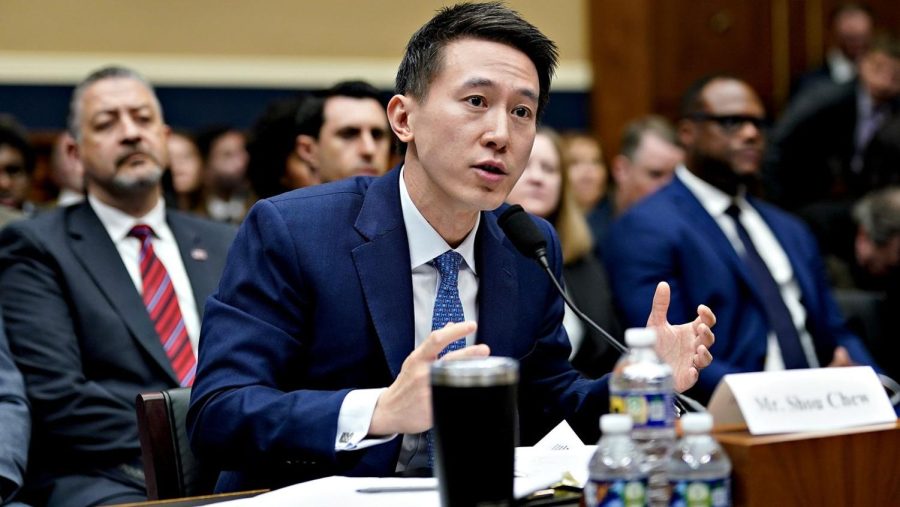Potential TikTok ban brings attention towards security and privacy across online media platforms
June 1, 2023
A U.S. congressional hearing on potential legislation to ban TikTok was held in March. This meeting was held as a result of growing government concerns regarding the safety of user data on TikTok, and has magnified awareness and concern towards safety, security and privacy on social media and online platforms. The hearing was held in a bipartisan movement to ban the app amid government concerns about data privacy, misinformation and the app’s relationship with the Chinese government.
Montana recently became the first U.S. state to ban TikTok. Taking effect on Jan 1, 2024, the ban will not penalize TikTok users within the state but will make it illegal for app stores to allow TikTok downloads within Montana. This may be the beginning of a succession of states banning the app in the future.
Although there is no public evidence of user data on TikTok being used for foreign intelligence, the Biden administration has made threats to ban TikTok across the U.S. unless the app is handed over to a U.S. company.
“Our intelligence community has been very clear about China’s efforts and intention to mold the use of this technology using data in a worldview that is completely inconsistent with our own,” U.S. deputy attorney general Lisa Monaco said in an interview with the Wall Street Journal.
The U.S. government has expressed worries about the Chinese government’s ability to access personal user information on TikTok through their national security laws, which require private companies to provide the government with private user information, if requested, as well as their ability to control the content users see. This could potentially spread disinformation and affect U.S. policy and election results. These concerns are primarily pointed at ByteDance, TikTok’s Beijing-based parent company.
An investigation into ByteDance was launched in March by the U.S. Department of Justice and the FBI after the company was found guilty of improperly accessing TikTok users’ personal data. While there is no public evidence that this is a widespread issue in ByteDance, it demonstrates the company’s intentions to access and use private data.
“TikTok has never shared, or received a request to share, U.S. user data with the Chinese government,” Shou Zi Chew, Chief Executive Officer of TikTok said prior to the hearing in a written testimony. “Nor would TikTok honor such a request if one were ever made.”
In response to U.S. scrutinization, TikTok has formed plans for initiatives meant to ensure the security of user data. These plans include Project Texas, a massive corporate restructuring that would allow the U.S. government and third party companies to oversee TikTok’s handling and use of data. Project Texas would also put the app under US government audits. TikTok has invested $1.5 billion in Project Texas in efforts to prevent a ban by the U.S. government. A similar project, Project Clover, is also in the works for the European Union.
A 2020 investigation by researchers associated with The Washington Post found TikTok collects just as much data from users as mainstream social networks in the U.S. This includes the videos that users watch, private messages sent, search and browsing history and location. However, what the data is being used for once collected is more ambiguous. Similar conclusions were drawn from a technical analysis on TikTok conducted in 2021 by Pellaeon Lin, a Taiwan-based researcher at the University of Toronto’s Citizen Lab.
Other social media platforms with similar short-form video content, such as Instagram reels, have already gained popularity and may aim to replace TikTok completely in the US. It is also probable that a completely new app run by U.S. developers will be created as an alternative to the app if it is banned.
“If you think the U.S. needs a TikTok ban and not a comprehensive privacy law regulating data brokers, you don’t care about privacy, you just hate that a Chinese company has built a dominant social media platform,” wrote Eva Galperin, the director of cybersecurity at the Electronic Frontier Foundation, on twitter.



